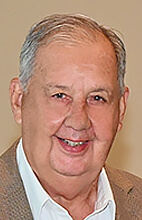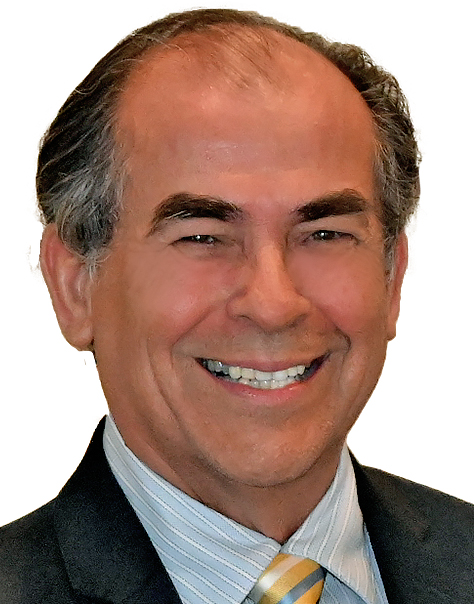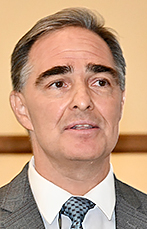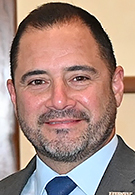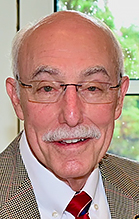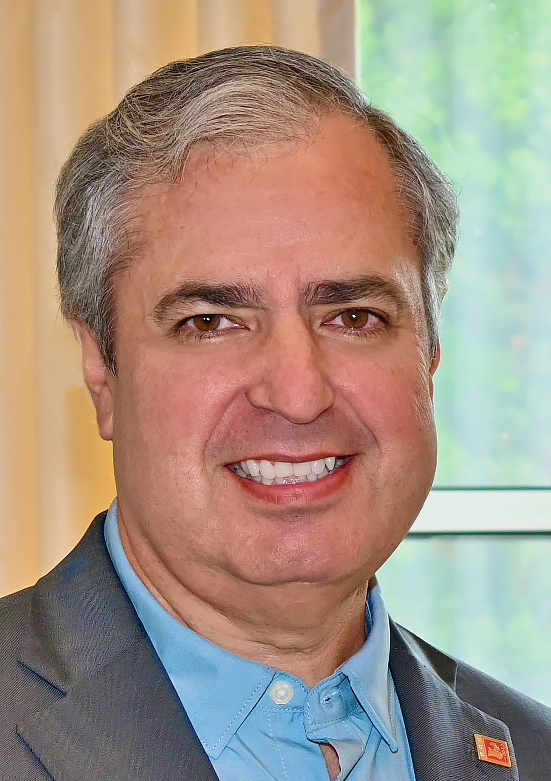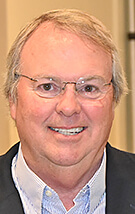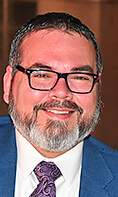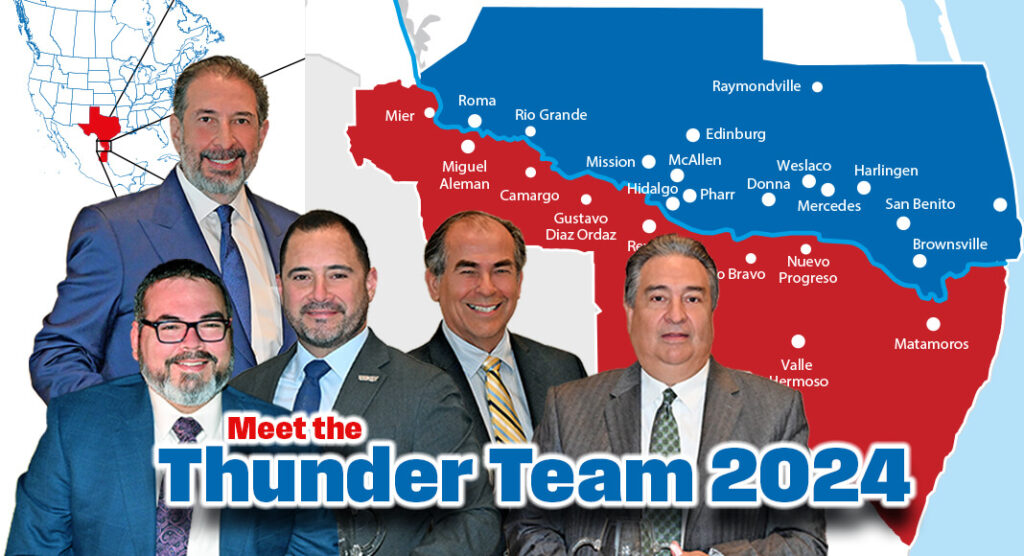
Texas Border Business
By Roberto Hugo González
Joaquin Spamer addressed key stakeholders and members of the Prosperity Task Force CEO group, highlighting the significance of unity and collaboration in regional economic development. His speech stressed the importance of a unified identity, efficient resource utilization, and strategic marketing to boost the region’s economic prospects. Spamer, the Founder and President of CIL Group—which encompasses Commodities Integrated Logistics, SALSA, Bio Safe, CIL Capital, and CIL Fresh, among others—outlined key points, proposed strategies, and potential implications for regional development.
This historic event saw the unveiling of the name “RioPlex” during a breakfast meeting on Wednesday, June 19, 2024, at the McAllen Country Club. Over 60 business leaders and elected officials attended. In addition to the new name, RioPlex introduced its new tagline: “USMCA Friendshoring Capital.”
USMCA (The United States-Mexico-Canada Agreement)
RioPlex emerged as a standout name during brainstorming sessions conducted by the Prosperity Task Force’s Marketing Group. South Texas College, Region One Educational Service Center Marketing Department, Consolidated Integrated Logistics (CIL), De Saro Public Relations, and Hidalgo County Public Affairs Office collaborated in multiple meetings to determine an ideal name for the region. After considering several recommendations, RioPlex was chosen.
Lynda Lopez, Executive Director of Public Relations and Marketing, and her innovative team at the STC Marketing Department, along with Region One Educational Service Center, Hidalgo County Public Affairs Office, De Saro Public Relations, and CIL, played crucial roles in this significant milestone for the region.
Adopting a region-wide name was challenging because it included both the U.S. and Mexico sides of the border—a major selling point of this region as a gateway to Latin American markets. That challenge excluded the name “Rio Grande Valley” because the well-known name refers only to the U.S. side of the border.
By highlighting South Texas and Northern Mexico, the RioPlex region can show potential investors a market of more than 3.5 million people. The latest U.S. Census shows the four counties of the Rio Grande Valley have a population of about 1.3 million.
The RioPlex region, with its companies headquartered in 20 different countries, seven international airports, and 13 international bridges, is a global business hub, offering a gateway to international markets.
Wednesday’s presentation included information about the region’s economic transformation over the past decade and recommendations for the type of industry RioPlex should pursue.
Spamer used the Olympics as a metaphor for the necessity of regional unity. Just as athletes represent their countries, the region should present a united front. This unity is crucial for a consistent identity that can be marketed globally to attract investment and stimulate economic development.
His presentation emphasized the need for a unified identity to be marketed globally. A single, consistent brand can simplify and strengthen the region’s image, making it more attractive to potential investors and partners.
Spamer’s speech highlighted that while significant amounts of money are being spent on economic development, these efforts are often fragmented and need coordination. This fragmentation diminishes the overall impact of the investments.
Spamer cited Mexico’s avocado marketing campaign, utilizing $55 million annually to create a globally recognized brand. This example illustrated the potential impact of a unified and strategic marketing approach, suggesting that similar strategies could be employed to promote the RioPlex region.
The presentation identified that different regional cities and economic development corporations work independently, leading to inefficiencies and diluted efforts. This lack of coordination hampers the region’s ability to attract significant investments.
He also noted that the region needs a clear, unified identity. The projected image makes it difficult to market effectively and attract investment. Establishing a strong and connected binational brand is essential for overcoming this challenge.
He mentioned that harmful messages, such as the non-safe travel advisory for certain areas, pose additional challenges for attracting investment. Addressing these concerns is crucial for improving the region’s image and appeal to investors.
Spamer proposed creating a new, unified brand name for the region, similar to the “Border Plex” initiative in El Paso and Ciudad Juarez. This unified brand would help streamline marketing efforts and present a consistent and unified image.
In addition, he stressed the importance of a well-coordinated marketing campaign to change the region’s narrative and perception. A strategic marketing campaign can highlight the region’s strengths and potential, attracting investment and economic activity.
Spamer called for the private sector to step in and support public sector efforts, emphasizing the need for joint action to achieve economic development goals. Joint efforts between the private and public sectors can lead to more effective and sustainable economic development strategies.
He also encouraged leveraging successful strategies from individual businesses and applying them at the regional level. By adopting and scaling successful practices, the region can enhance economic development.
Spamer, who has traveled the world with an invitation for global companies to move to the RioPlex region, used a personal analogy to illustrate the importance of setting specific, measurable goals and having a clear plan. As with weight loss, setting precise targets and tracking progress is essential for achieving economic development objectives. He emphasized the need to break down complex tasks into smaller, manageable pieces and assign responsibility to ensure accountability.
His brief speech stressed aligning educational outcomes with future job market needs, ensuring that high school graduates are prepared for emerging industries. Developing a skilled workforce that meets the demands of the future job market is essential for sustainable economic growth.
Spamer advocated a strategic approach that considered immediate, mid-term, and long-term goals to ensure sustainable growth. “It’s got to be an oriented strategy that balances short-term gains with a long-term vision that can drive the region’s economic prosperity.”
The creation of RioPlex, as outlined in Spamer’s speech, marks a significant step towards unified and strategic economic development. By addressing challenges, leveraging resources effectively, and fostering collaboration, the RioPlex region can position itself as a major player in the global market.
Hidalgo County Judge Richard F. Cortez, a loyal advocate for regional economic collaboration, enthusiastically supports the new ” RioPlex, USMCA Friendshoring Capital” initiative marketing strategy to boost investment in South Texas and Northern Mexico. “To attract outside investment and foster economic growth, we must present ourselves as a unified region rather than isolated municipal entities,” Judge Cortez emphasizes. As the founder of the Hidalgo County Prosperity Task Force, Cortez views this initiative as a crucial step towards achieving broader economic prosperity for the area.
Mario Reyna, a dedicated Hidalgo County Prosperity Task Force member, served as the Dean of Business and Technology at South Texas College. In his role on the task force, Reyna brings a wealth of knowledge and experience in education and workforce development, contributing to the region’s strategic planning for economic growth. His involvement emphasizes the importance of aligning educational programs with the evolving needs of the local economy, ensuring that the workforce is well-equipped to support and sustain new investments attracted by the RioPlex initiative.
Dr. Kevin M. Peek, an economist with South Texas College, delivered a compelling presentation at the RioPlex initiative, challenging misconceptions about the Rio Grande Valley’s economic and social status. He highlighted the region’s significant progress over the past 25 years, noting dramatic decreases in unemployment and more than doubled median household incomes. Dr. Peek criticized media portrayals of the area as stagnant, emphasizing that these depictions overlook substantial improvements and ongoing progress. He attributed the region’s economic development to a shift from agriculture to technology and innovation, alongside advancements in education. Dr. Peek called for a more accurate and optimistic narrative of the region’s future.
Ron Garza, UTRGV Senior Associate Vice President for Workforce & Economic Development, shared his practical insights during the RioPlex initiative. With extensive experience in local government and economic development, Garza emphasized the critical role of collaboration across the Valley, highlighting the strides made in unifying efforts to attract investment and improve workforce development. He underscored the need for continued focus on high-impact industries and the importance of developing local talent through targeted upskilling initiatives. Garza called for aligning operational strategies and policies among cities to foster a cohesive approach, ultimately enhancing the region’s economic prospects and quality of life.
During the RioPlex initiative, Mario Reyna introduced Mike Braun, a distinguished speaker with a diverse background in the Navy, hospital administration, and the FBI. Braun, currently with Hamer Enterprises, emphasized the need for the Rio Grande Valley to capitalize on technological advancements and educational priorities. Drawing from his experiences with high-tech companies like NASA, Samsung, and LabCorp, he highlighted the importance of training students in computer science, engineering, and healthcare technology. Braun proposed leveraging local relationships to expand manufacturing capabilities and stressed the importance of cybersecurity and intellectual property protection. He called for a strategic, joint approach to make the Rio Grande Valley a hub of technological and economic growth.
Adrian Villarreal, the President and CEO of IBC Bank in Hidalgo County, reacted positively to the recent RioPlex Initiative breakfast meeting. “This was a really good meeting. It was very insightful, with many excellent speakers and valuable information,” said Villarreal.
He highlighted the region’s unique position to market itself and reach its full potential. Villarreal noted, “We are uniquely positioned today to take advantage of the dynamic developments happening here.” He pointed out significant growth in the educational workforce and institutions, advancements in technology and the medical industry, and exciting projects like SpaceX and the LNG plant in Brownsville.
Jim Collins’ Reaction to the RioPlex Initiative
“The RioPlex has never been in a better position to springboard into the future,” Villarreal emphasized. He believes these advancements will significantly improve the quality of life for everyone in the region.
Jim Collins, a McAllen resident and business professional in banking and real estate, enthusiastically reacted to the RioPlex initiative. “I was very enthused to hear about a unified approach to marketing our area and increasing our productivity and economic activity,” Collins said.
He strongly supported the steps, emphasizing their need for regional growth. “I 100% support the steps that have been taken, and I think they’re necessary,” Collins stated. “These are small building steps, and we need to get the collaboration of other existing cities in our area as well as in Mexico.”
Collins believes such collaborative efforts are crucial for the success of the RioPlex initiative, highlighting the importance of unity and joint efforts to maximize the region’s potential.
Lynda Lopez, Executive Director of Public Relations and Marketing, and her innovative team at the STC Marketing Department, along with Region One Educational Service Center, Hidalgo County Public Affairs Office, De Saro Public Relations, and CIL, played crucial roles in this significant milestone for the region.
Daniel Silva, President/CEO at RGV Partnership.
Daniel Silva is a dedicated public sector professional with a career spanning since 2004. He specializes in economic development, transportation, education, and job creation. He holds notable certifications such as Certified Public Manager (CPM), Economic Development Finance Professional (EDFP), and Professional Community and Economic Developer (PCED).












